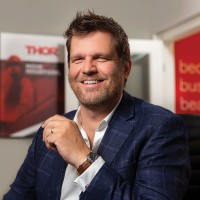Industry Insights
Musings from Elon Musk's New Biography

Walter Isaacson has gifted us another intimate look at another of today’s most important innovators — Elon Musk. I was given a copy of his latest biography for Christmas. I opened the 600+ page book later Christmas morning and finished it before the year was out. I’m a slow reader so this is a testament to Isaacson’s writing, which is very accessible and entertaining. It’s also indicative of how fascinating an individual Elon Musk is.
As with his biography of Steve Jobs, Isaacson shows us both the brilliant and the baffling side of his latest subject – the dazzling and the dark, if you will. And with Musk there is an abundance of both.
Musk is portrayed as crazy-smart, visionary, incredibly daring, disruptive, entrepreneurial, determined, driven… and wildly successful at accomplishing the [seemingly] impossible goals he sets for himself and his team. Isaacson chronicles the building and selling of Musk’s first venture, his investment in numerous other tech startups – including PayPal – and finally the founding and leadership of Tesla, SpaceX & Starlink, the Boring Company, Open AI, Neuralink and yes… the purchase of Twitter.
Isaacson also recounts numerous occasions along the way when Musk has gone into “demon mode,” ordering his now infamous “surges” at his companies. These surges see Musk launching into personal reviews of every detail of the design and manufacturing process, ordering rule-breaking changes, issuing ridiculous deadlines to reach [seemingly] impossible goals and cooly ending his dictates with something to the effect of, ”In the event you are unable to do this your resignation will be accepted.”
We can read about numerous firings and shake-ups, from letting key leaders go with little more than a “goodbye” to cleaning house at Twitter immediately after he acquired it. Although he’s a brilliant engineer and is incredibly knowledgeable about the laws of physics, Musk can be clueless when it comes to relating to people – his interactions can be “callous and at times destructive.” This is true for the relationships he has at work and at home.
Isaacson doesn’t make excuses for Musk’s sometimes bad behaviour but he does recall Shakespeare who “teaches us, all heroes have flaws, some tragic, some conquered, and those we cast as villains can be complex. Even the best people, he wrote, are ‘moulded out of faults’”. Isaacson empathically explores Musk’s painful childhood and the physical and emotional scars that contribute to who he is and how he operates. He then wonders “are the demons that drive Musk also what it takes to drive innovation and progress?”
The questions I had weren’t so much about what drives innovation and progress as much as they were about the pace at which Musk drives these things – his maniacal sense of urgency! That and his need for crisis and drama.
“Musk cares a lot about humanity, but very much in a macro sense.”
Halfway through the book Lucas Hughes, an engineer whom Musk had dramatically fired, was asked about his experience working for Musk. Hughes says, “Musk cares a lot about humanity, but very much in a macro sense.” This was as good a summary statement as any I could’ve come up with for my own sense of the man. Indeed Musk seems to be concerned, if not consumed, by the issue of humanity’s future but struggles to care for the individual right in front of him. This raises a lot of questions for me.
I recommend reading this book. It is well written and well researched. Isaacson spent two years shadowing Musk, attending meetings with him, touring factories with him and interviewing his friends and family. Musk made no attempt to limit the author’s access. The author did not permit Musk to read the book before it was published and from what I understand, he has still not read it (given his workload described within the book, that is quite understandable).
I also recommend reading this book because Musk is an important shaker and shaper of our world. We do well to know a little about him, if only to decide what is worth learning from his example. I believe there is much we can learn from Musk. Emulation though, might be better done in smaller and more selective doses.

Written by Jason Bouwman, RGD
January 2, 2024